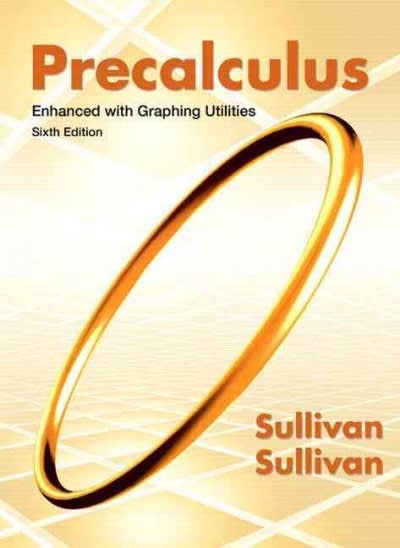Question
(1) When cook Paolo costs his forte 'pizza-n-all' supper at 25, he sells 20 dinners every day. At the point when he costs his pizza
(1) When cook Paolo costs his forte 'pizza-n-all' supper at 25, he sells 20 dinners every day.
At the point when he costs his pizza supper at 22, he sells 21 dinners every day.
Assume Paolo decreases his cost from 25 to 22. Clarify the effect of the value decrease on the income he gets from the initial 20 dinners he sells.
Complete Revenue - Price X Quantity.
Income @ 25 = 25 X 20 = 500.
Income @ 22 = 25 X 20 = 440
The effect of the value decrease is a decrease in absolute income of 60 (- 12%) over the initial 20 suppers that he sells.
Figure the extra income created from the extra dinners he sells when he brings his value down to 22.
All out Revenue = Price X Quantity.
All out Revenue @ 22 = 22 X 21 = 462.
Extra Revenue = Revenue @ 25 - income @ 22 = 500 - 462 = - 38.
Compute the negligible income Paolo gets from the 21st supper. How does that sum identify with the sums you determined in (a) and (b)? (3%)
Assume Paolo lessens his cost from 25 to 22. Clarify the effect of the value decrease on the income he gets from the initial 20 suppers he sells.Is Paolo's choice to lessen his cost from 25 to 22 a decent one? Why or why not?
(1) When gourmet expert Paolo costs his strength 'pizza-n-all' dinner at 25, he sells 20 suppers every day.
At the point when he costs his pizza dinner at 22, he sells 21 suppers every day.
Ascertain the extra income produced from the extra suppers he sells when he brings his value down to 22.
Ascertain the negligible income Paolo gets from the 21st supper. How does that sum identify with the sums you determined in (a) and (b)?
Is Paolo's choice to lessen his cost from 25 to 22 a decent one? Why or why not?
Given this direct programming model, settle the model and afterward answer the inquiries that follow.
Amplify Z = 12x1 + 18x2 + 15x3 where x1 = the amount of item 1 to make,
and so forth
Subject to
Machine: 5x 1 + 4x 2 + 3x 3 160 minutes
Work: 4x1 + 10x2 + 4x3 288 hours
Materials: 2x 1 + 2x2 + 4x3 200 pounds
Item 2: x2 16 units
x1, x2, x3 0
a) Are any imperatives restricting? Assuming this is the case, which one(s)?
b) If the benefit on item 3 were changed to $22 a unit, what might the upsides of the choice
factors be? The goal work? Clarify.
c) If the benefit on item 1 were changed to $22 a unit, what might the upsides of the choice
factors be? The goal work? Clarify.
d) If 10 hours less of work time were accessible, what might the upsides of the choice factors
be? The goal work? Clarify.
e) If the chief concluded that upwards of 20 units of item 2 could be created (rather than
16), what amount extra benefit would be produced?
;;4;1;;
f) If benefit per unit on every item expanded by $1, would the ideal upsides of the choice
factors change? Clarify. What might the ideal worth of the obj
Consider an economy that isn't delivering up to its latent capacity and has a joblessness rate that is higher than ordinary. Distinguish one arrangement that may be relied upon to help lift the economy out of this droop, so the economy is moved back toward full work. Present an investigation (utilizing an AS-AD graph, and work market chart) that clarifies why your approach proposal may benefit a few. Specifically, clarify what your approach change will mean for the work level, joblessness rate, value level, yield level, and genuine compensation level.
Step by Step Solution
There are 3 Steps involved in it
Step: 1

Get Instant Access to Expert-Tailored Solutions
See step-by-step solutions with expert insights and AI powered tools for academic success
Step: 2

Step: 3

Ace Your Homework with AI
Get the answers you need in no time with our AI-driven, step-by-step assistance
Get Started


